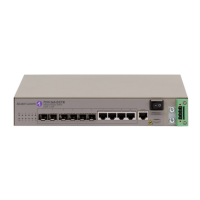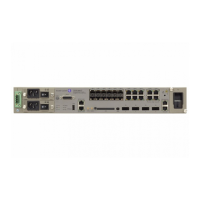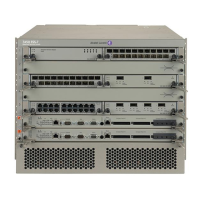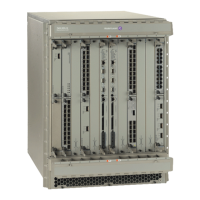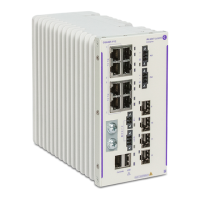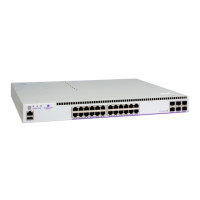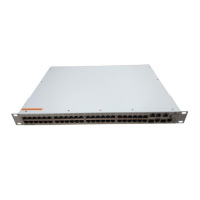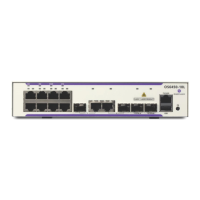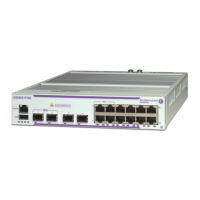MPLS and RSVP
7210 SAS M, T, X, R6, Mxp MPLS Configuration Guide Page 65
RSVP Overhead Refresh Reduction
The RSVP refresh reduction feature consists of the following capabilities implemented in
accordance to RFC 2961, RSVP Refresh Overhead Reduction Extensions:
• RSVP message bundling — This capability is intended to reduce overall message
handling load. The 7210 SAS supports receipt and processing of bundled message only,
but no transmission of bundled messages.
• Reliable message delivery: — This capability consists of sending a message-id and
returning a message-ack for each RSVP message. It can be used to detect message loss
and support reliable RSVP message delivery on a per hop basis. It also helps reduce the
refresh rate since the delivery becomes more reliable.
• Summary refresh — This capability consists of refreshing multiples states with a single
message-id list and sending negative ACKs (NACKs) for a message_id which could not
be matched. The summary refresh capability reduce the amount of messaging exchanged
and the corresponding message processing between peers. It does not however reduce the
amount of soft state to be stored in the node.
These capabilities can be enabled on a per-RSVP-interface basis are referred to collectively as
“refresh overhead reduction extensions”. When the refresh-reduction is enabled on a 7210 SAS
RSVP interface, the node indicates this to its peer by setting a refresh-reduction- capable bit in the
flags field of the common RSVP header. If both peers of an RSVP interface set this bit, all the
above three capabilities can be used. Furthermore, the node monitors the settings of this bit in
received RSVP messages from the peer on the interface. As soon as this bit is cleared, the node
stops sending summary refresh messages. If a peer did not set the “refresh-reduction-capable” bit,
a 7210 SAS node does not attempt to send summary refresh messages.
